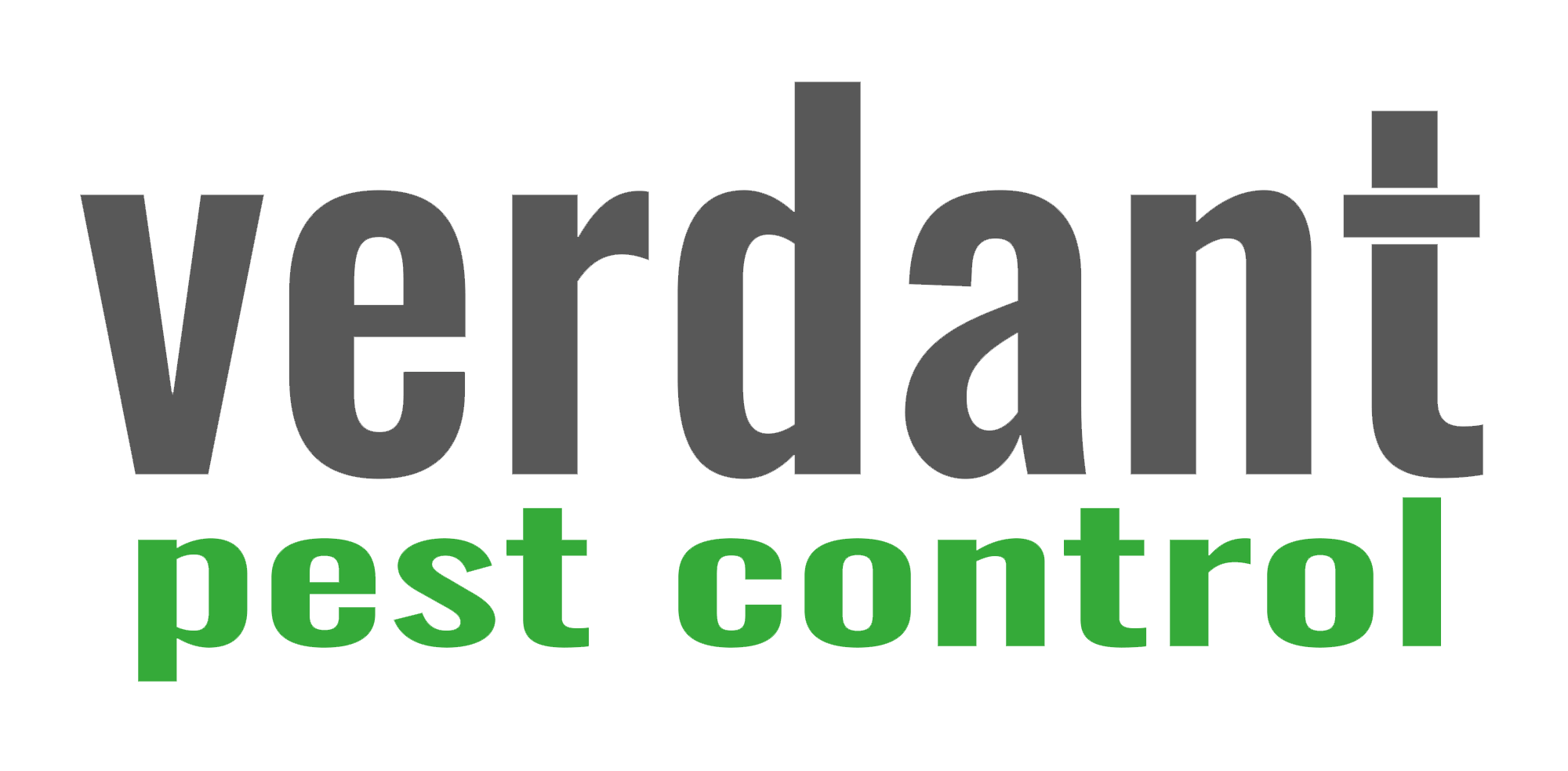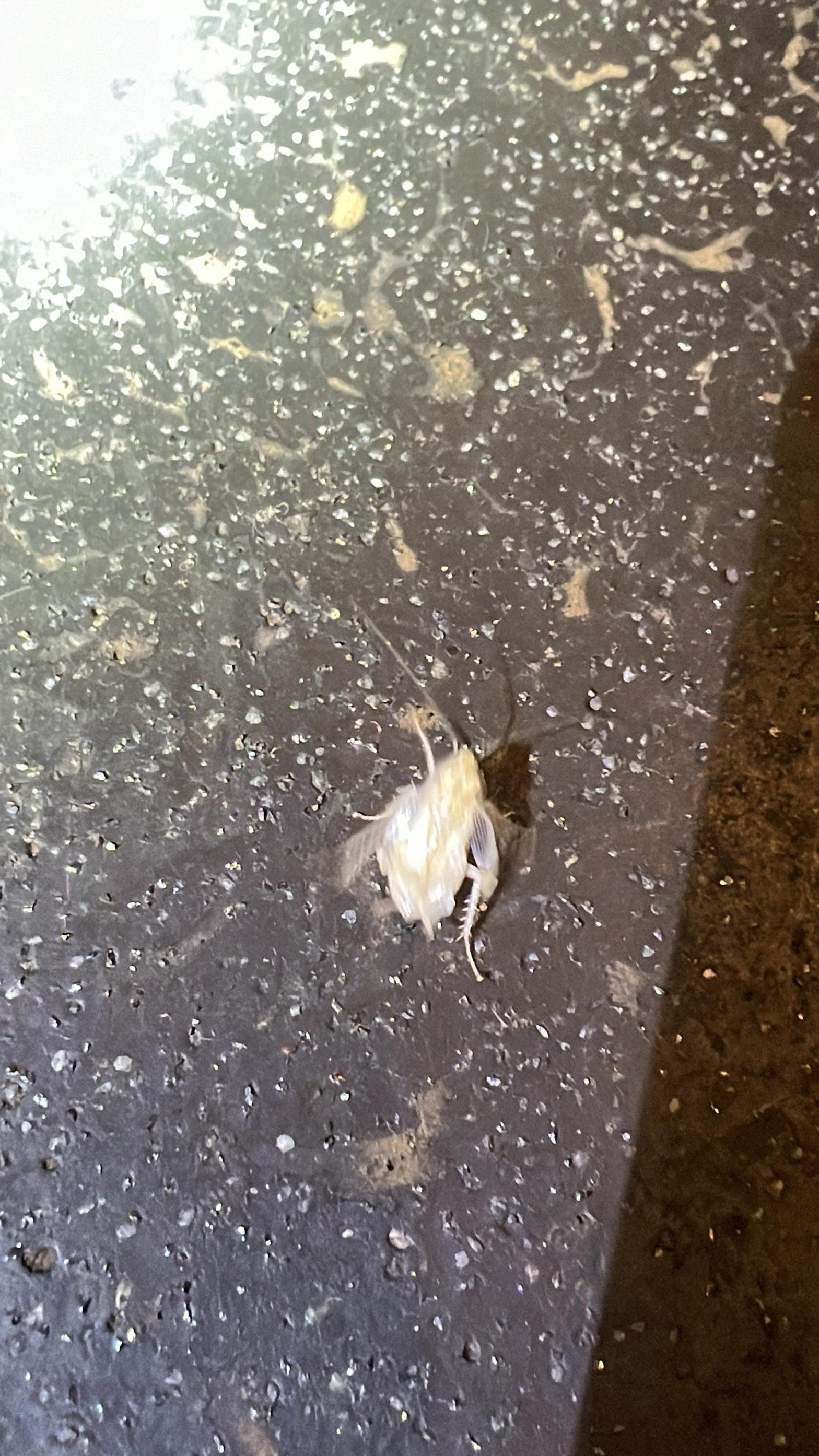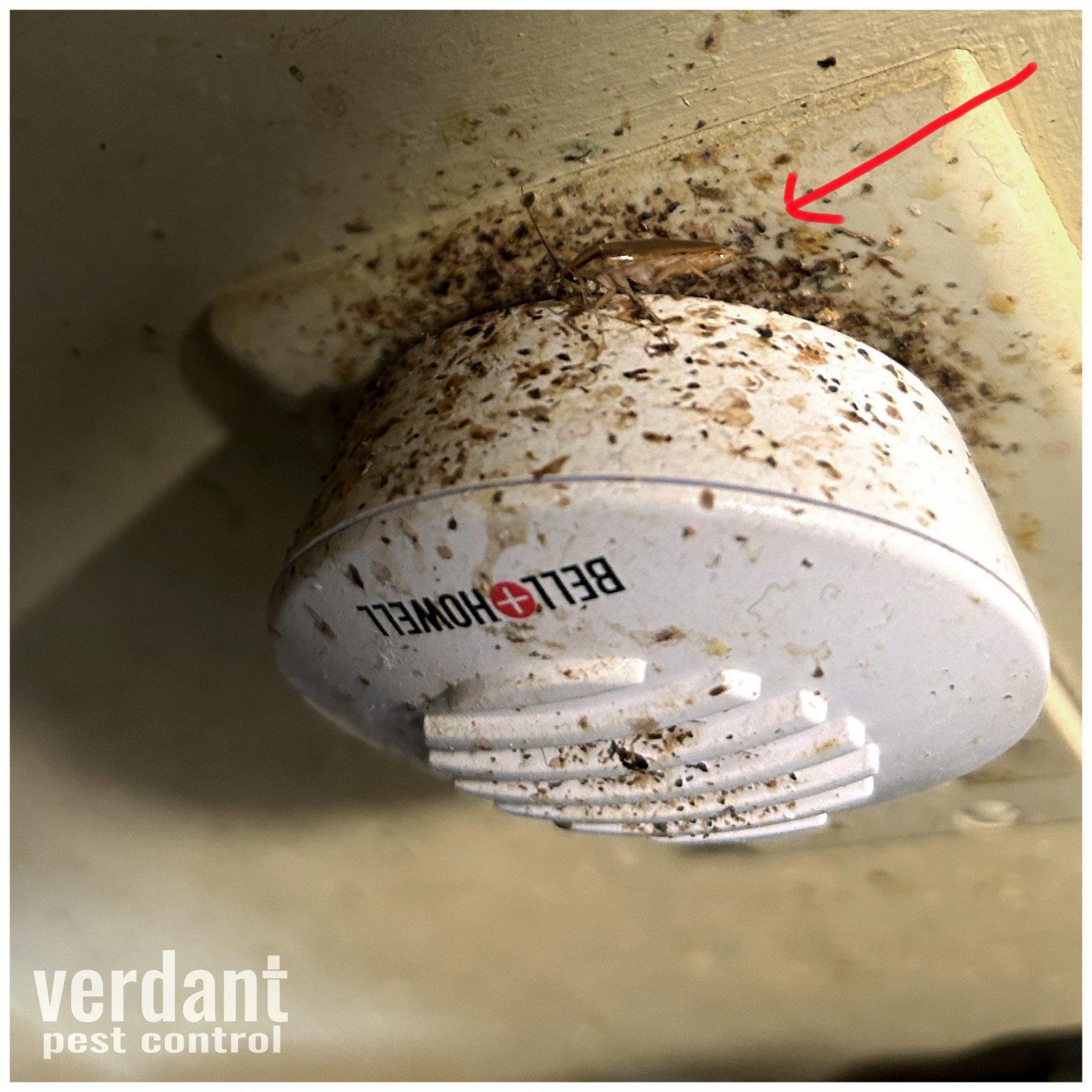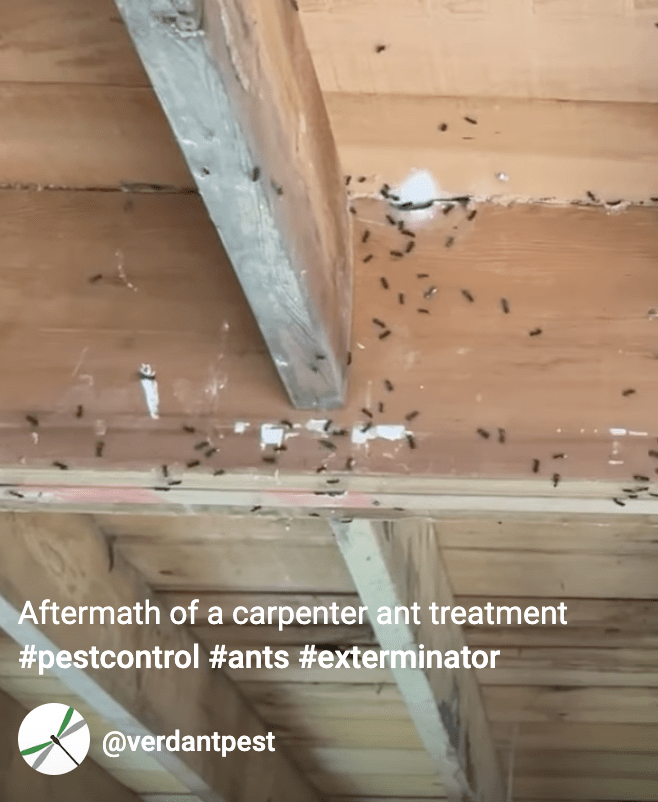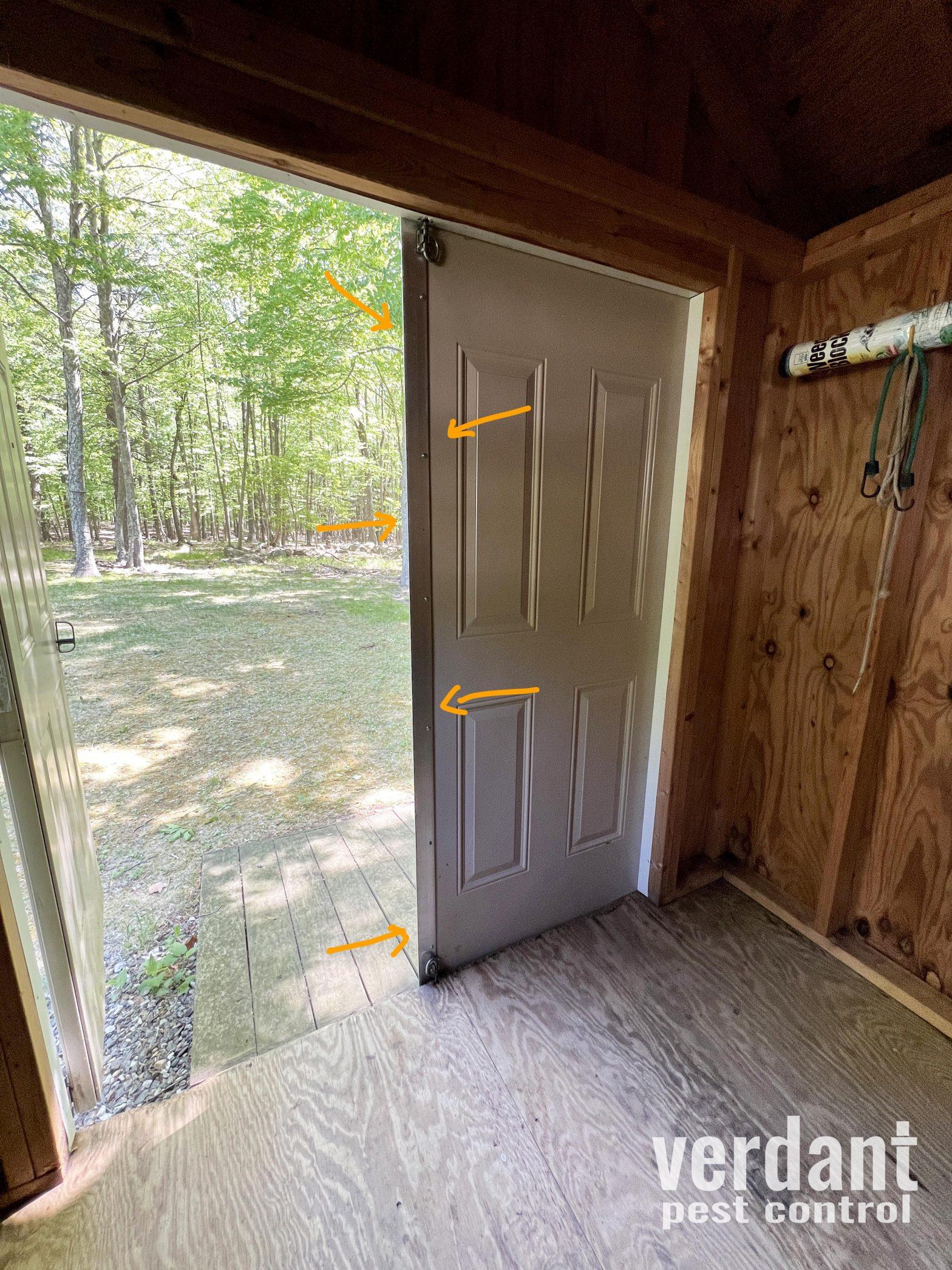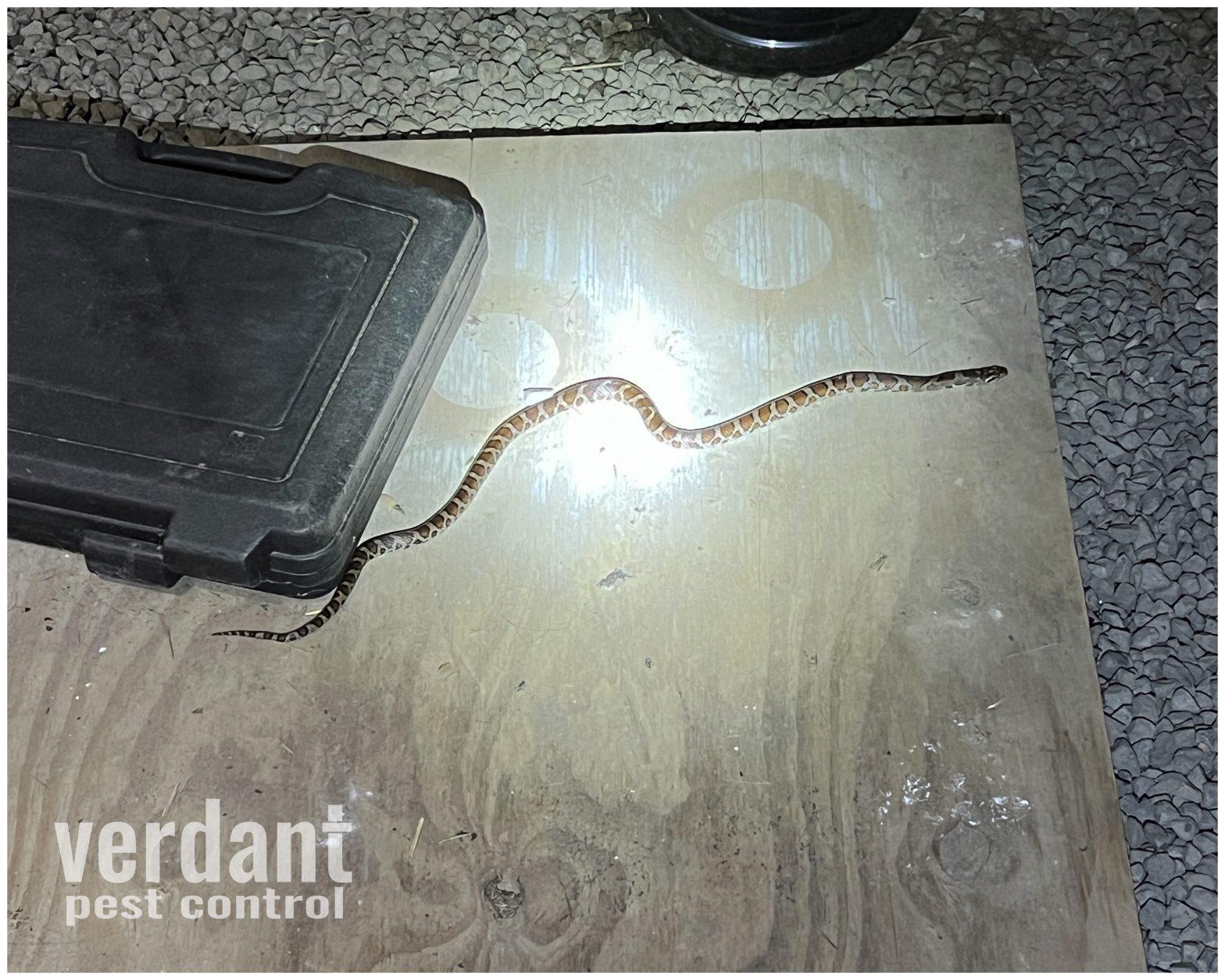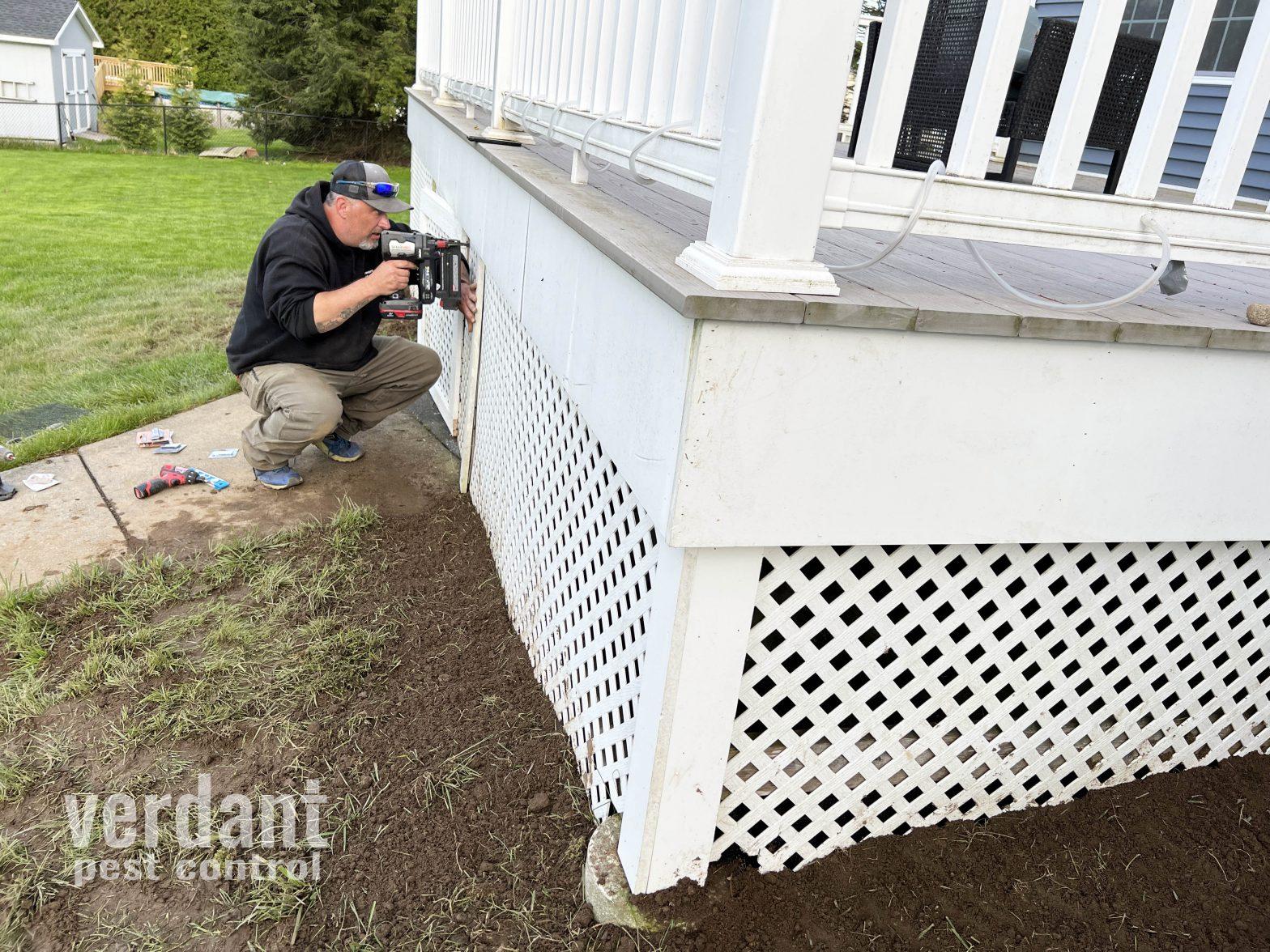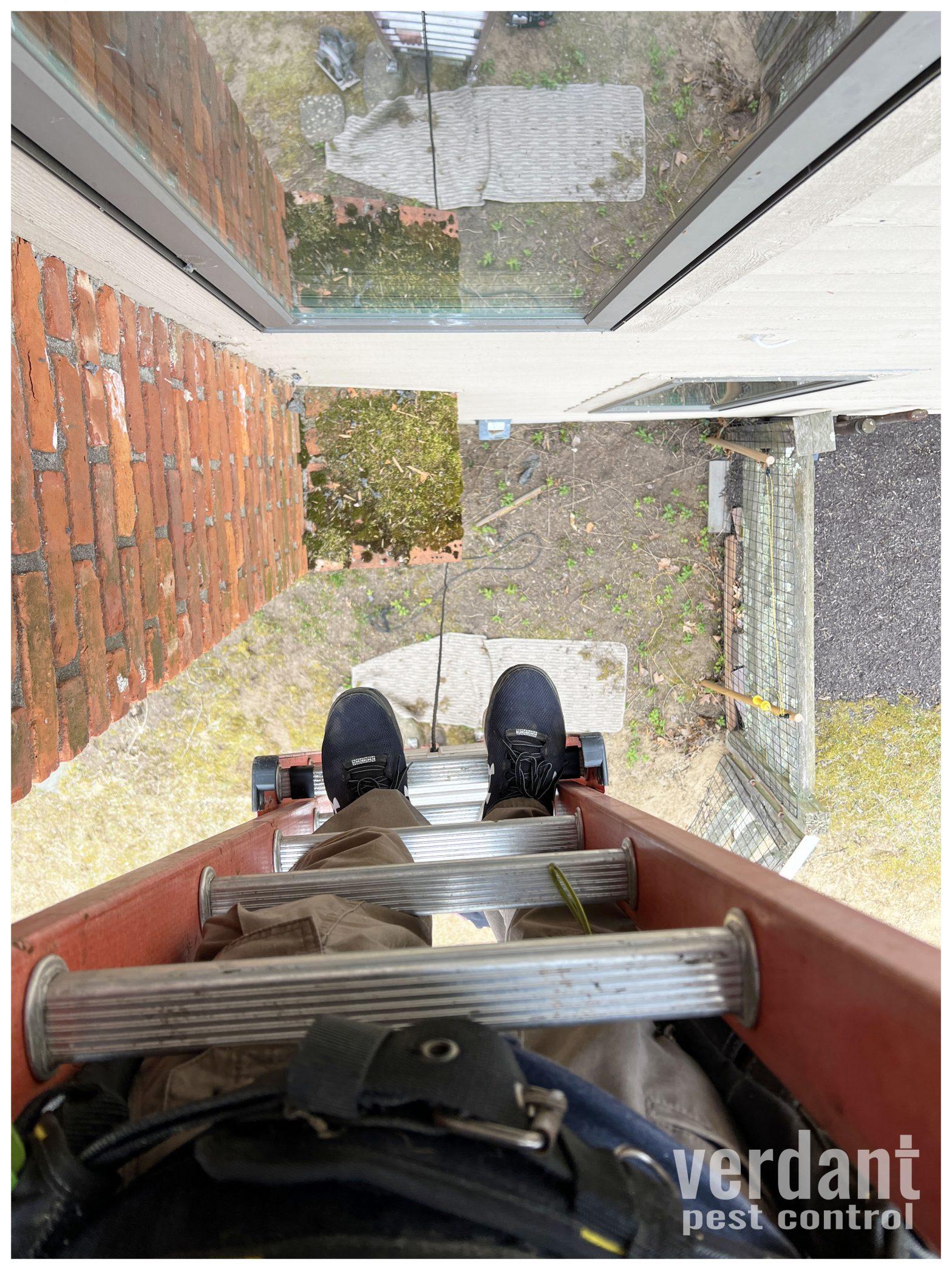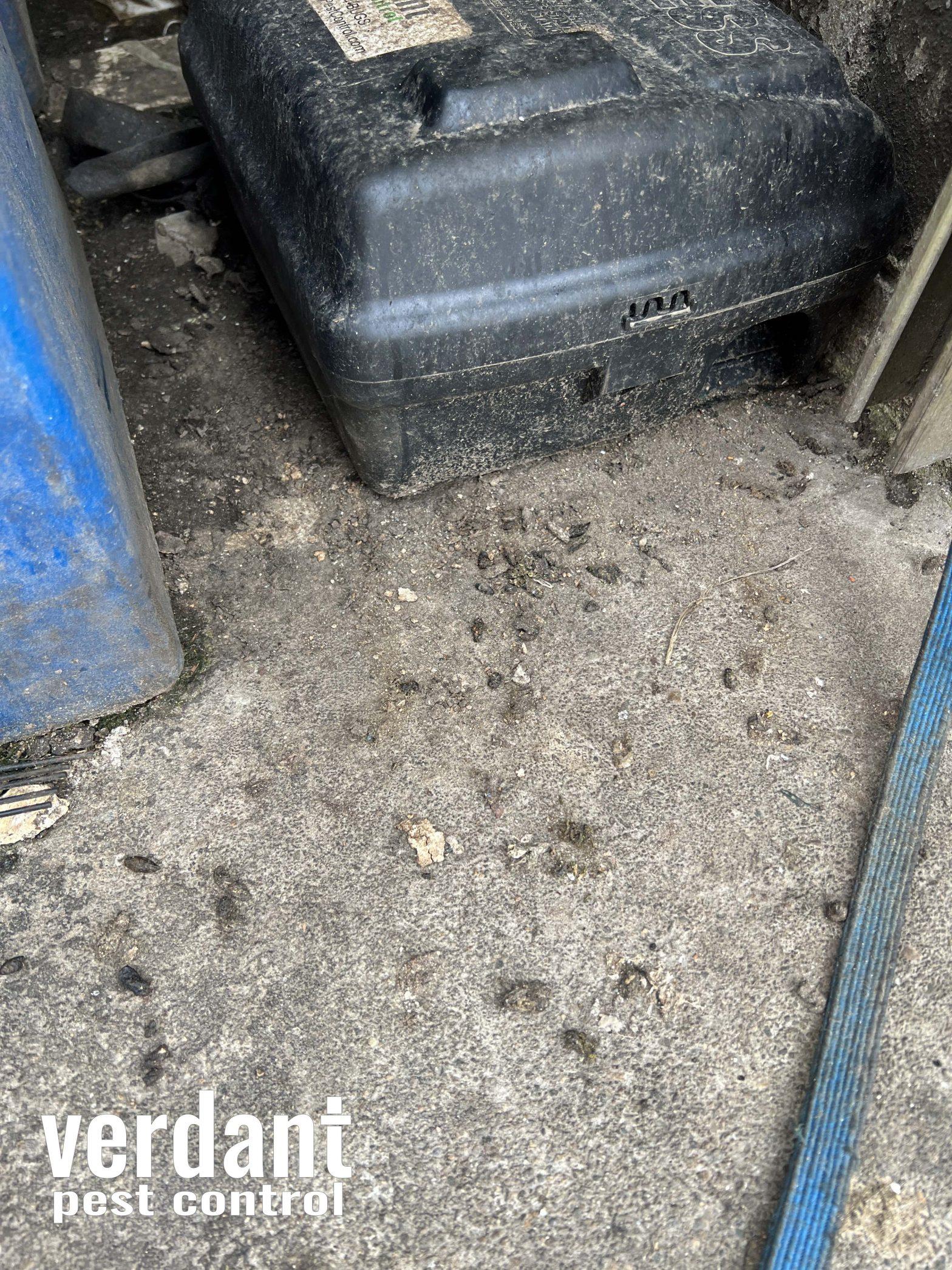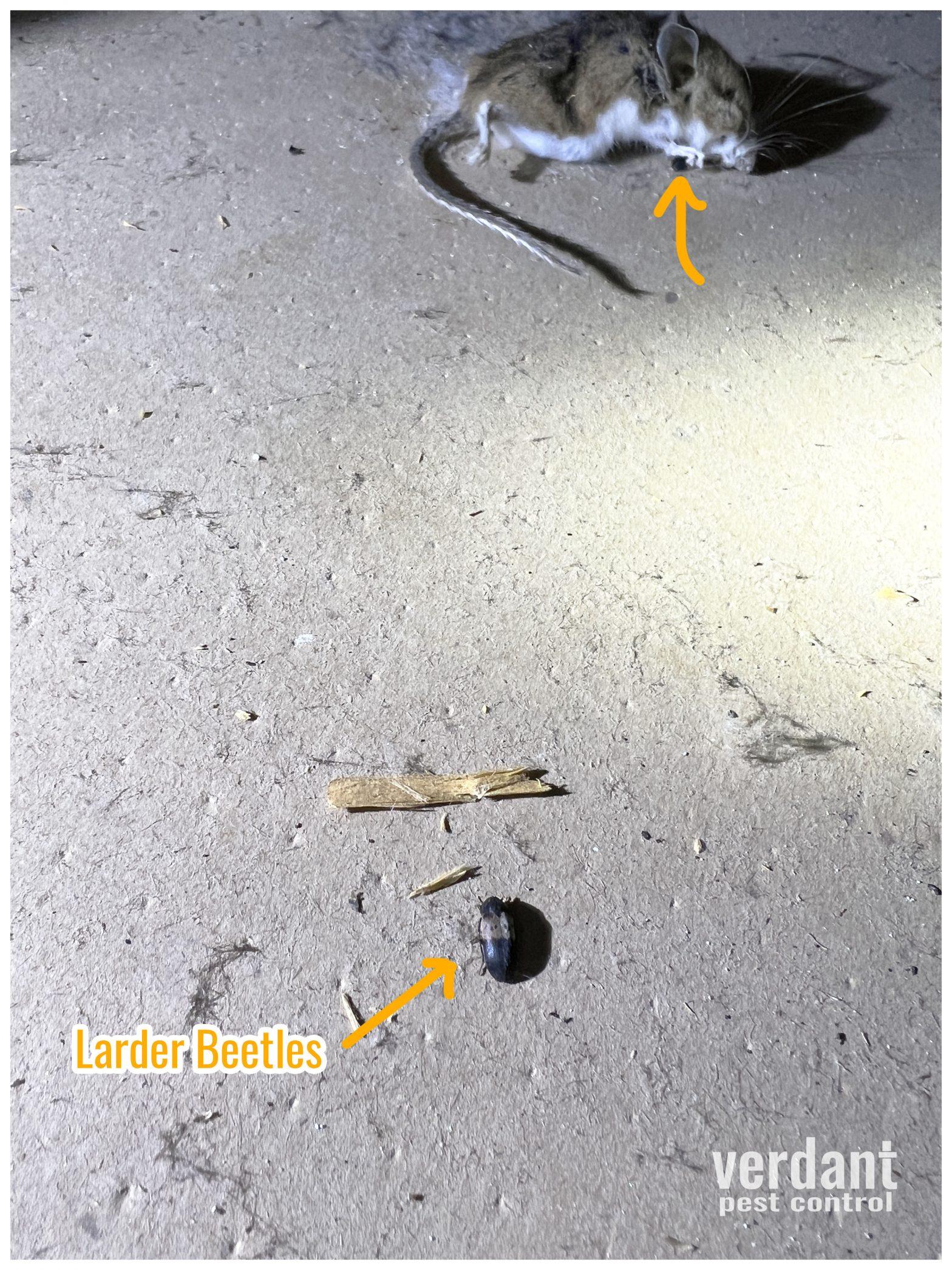Watch as this hidden wasp nest is exterminated. Wasps have built a nest inside a gap along the gutters and facia board. Take care this time of year as nests begin to get big and wasps become increasingly aggressive.
Category: Pest Info
Ever see an all-white cockroach before?
The intriguing reason behind why cockroaches turn white during molting. When roaches shed their exoskeleton, they lose pigmentation, which is gradually restored through a fascinating chemical process, influencing their color and possibly even their biological clocks.
Roach Repeller…LOL
Sonic devices, which claim to repel pests like roaches through emitting high-frequency sound waves, have faced skepticism and limited success in practical application. While the theory behind these devices suggests that ultrasonic frequencies disturb pests and drive them away, several factors contribute to their inefficacy. Firstly, the effectiveness of such devices is hindered by the ability of pests, particularly roaches, to adapt to changes in their environment. Roaches may quickly become immune to the constant sonic stimuli, rendering the devices ineffective over time. Additionally, the limited range and penetration of the sound waves may not reach all areas where roaches hide, allowing them to remain unaffected. Scientific studies on the efficacy of these devices have yielded inconsistent results, further casting doubt on their reliability. Ultimately, a multifaceted approach involving proper sanitation, sealing entry points, and targeted pest control measures is generally more successful in managing roach infestations than relying solely on sonic devices.
Carpenter Ant Treatment: VIDEO
Click here to watch a 60 second video of a hidden carpenter ant nest getting treated with a dust pesticide.
Keep Mice Out Of Your Shed
Your shed is more than just a storage space. It houses your valuable tools, gardening equipment, and cherished belongings. However, one tiny intruder, such as a mouse, can quickly turn your shed into a haven for pests. In this blog post, we’ll discuss the importance of keeping mice out of your shed and how hiring a professional pest control company can help you maintain a pest-free environment.
Protect Your Belongings:
Mice may seem harmless, but they can cause extensive damage to your shed and its contents. These furry critters have a knack for chewing through wires, insulation, and even wooden structures. By keeping mice out of your shed, you safeguard your belongings from costly repairs or replacements.
Prevent Health Risks:
Mice are carriers of various diseases and pathogens that can pose serious health risks to you and your family. Their droppings and urine can contaminate surfaces and the air, potentially leading to respiratory issues and allergies. By taking proactive measures to keep mice away from your shed, you reduce the risk of these health hazards.
Avoid Structural Damage:
As mentioned earlier, mice are notorious chewers. They can gnaw through insulation, cardboard, and other materials, compromising the structural integrity of your shed. Over time, this damage can weaken the shed’s foundation, making it more susceptible to water leaks, rot, and collapse. By ensuring a mouse-free environment, you preserve the longevity of your shed.
Maintain Neatness and Organization:
A shed infested with mice can quickly become cluttered and chaotic. These critters tend to nest in piles of debris, creating a mess and making it difficult to access your belongings. By keeping mice out, you promote a clean and organized shed, allowing for easier navigation and better storage of your items.
Professional Pest Control Services:
Hiring a reputable pest control company can be a game-changer in your battle against mice infestations. These professionals have the expertise, knowledge, and tools to effectively eliminate mice and prevent their return. They can conduct thorough inspections, identify potential entry points, and implement tailored solutions to keep your shed pest-free.
Customized Prevention Strategies:
Pest control experts don’t just eliminate existing infestations; they also develop personalized prevention strategies. They may recommend sealing cracks and gaps, installing rodent-proof barriers, or implementing bait stations to deter mice from entering your shed. These preventive measures ensure long-term protection and peace of mind.
Your shed is a valuable asset, and keeping it free from mice is essential for maintaining its integrity and functionality. By hiring a professional pest control company, you can address existing infestations, prevent future problems, and enjoy a clean, organized, and pest-free shed. Don’t let mice undermine the safety and functionality of your storage space—take action today and protect your shed from these unwanted intruders.
Snake in Your Basement? Why You Should Call a Pest Control Company
Discovering a snake slithering in your basement can be an alarming and unsettling experience. While most snakes are harmless, it’s essential to handle the situation with caution and seek professional assistance. In this blog post, we’ll discuss why contacting a pest control company is the best step to take when encountering a snake in your basement.
Safety First:
When faced with a snake, it’s crucial to prioritize your safety and that of your family. Without proper knowledge and experience, it can be challenging to identify whether the snake is venomous or not. By contacting a pest control company, you ensure that trained professionals handle the situation safely and effectively.
Accurate Identification:
Differentiating between venomous and non-venomous snakes can be challenging for the average person. Pest control experts possess the expertise to accurately identify the snake species and determine the appropriate course of action. This knowledge allows them to take the necessary precautions and implement the most effective removal strategies.
Minimize Risk:
Even non-venomous snakes can become defensive and bite if they feel threatened. Attempting to capture or remove a snake without proper training increases the risk of bites or injuries. By relying on a pest control company, you minimize these risks and ensure that the snake is safely and efficiently handled.
Prevent Future Encounters:
A pest control company not only removes the snake from your basement but also addresses the underlying factors that attracted the snake in the first place. They can inspect your property for potential entry points, such as cracks or gaps, and recommend preventive measures to minimize the likelihood of future snake encounters.
Professional Expertise and Equipment:
Pest control professionals have the necessary knowledge, experience, and specialized equipment to handle snake removal effectively. They are equipped with snake handling tools that allow them to capture and remove the snake safely without causing harm to the reptile or the inhabitants of your home.
Peace of Mind:
Dealing with a snake in your basement can be a stressful experience. By entrusting the situation to a pest control company, you can alleviate your worries and have peace of mind knowing that experts are taking care of the problem. They will handle the situation promptly and efficiently, allowing you to focus on other aspects of your life without unnecessary stress.
Encountering a snake in your basement can be an unnerving experience, but the best course of action is to call a pest control company. Their expertise, training, and specialized equipment ensure the safe removal of the snake from your premises. Moreover, they can identify potential entry points and provide recommendations to prevent future snake encounters. Don’t take unnecessary risks—reach out to a professional pest control company when dealing with a snake in your basement and let them handle the situation with expertise and care.
Give us a call today if you are experience problems with snakes in or around your home.
Under Ground Fence Installed.
So many times do we see larger pests like woodchucks and skunks making dens under decks, additions and sheds. It is not uncommon at all. They excavate dirt and erode around footings and sidewalks. This moving of the soil can lead to all sorts of problems with the decline of structures in the area being the worst. An underground fence will stop and prevent these pests from being able to get into the void under decks, additions and sheds. The areas where you are least likely to look and most likely to have vulnerable stuff like plumbing, electrical and accessible (inaccessible for us) access into the home. Schedule a no-charge inspection to learn more how we can help you protect your home from nuisance wildlife.
Keep Flying Squirrels Out: Effective Exclusion Methods
Flying squirrels have made their way into this attic by chewing into the sill plate for the gable vent. The hardware cloth was not covering well enough and the squirrels exposed that weakness. We removed and replaced the bottom sill and then secured hardware cloth to the new piece. Now the squirrels would have to chew thru metal to get inside.
Flying squirrels belong to the family Sciuridae, and contrary to their name, they are not true flyers but are remarkable gliders. There are around 50 species of flying squirrels found worldwide, distributed across Asia, Europe, and North America. Among them, the northern and southern flying squirrels are the most commonly known.
The most distinctive feature of flying squirrels is their patagium, a specialized membrane of skin that extends between their forelimbs and hindlimbs. This patagium acts as a parachute, allowing them to glide effortlessly through the air. When they stretch their limbs out, the patagium expands, creating a larger surface area to catch air currents.
Flying squirrels are predominantly nocturnal creatures, well adapted to their nighttime habitat. They possess large, forward-facing eyes that enhance their depth perception and night vision. Their keen eyesight enables them to spot potential predators and navigate through dense forests in the dark.
These agile gliders make their homes in a variety of habitats, including forests, woodlands, and sometimes even urban areas. Their diet primarily consists of nuts, seeds, fruits, insects, and tree sap. They have sharp incisors that help them gnaw through hard shells and bark to access their preferred food sources.
Flying squirrels are generally solitary animals, but some species exhibit social behavior and live in small groups. They communicate through vocalizations, scent marking, and visual displays. Breeding season varies among different species, but typically occurs during spring or summer. Female flying squirrels give birth to litters of two to five young ones, which are blind and hairless at birth.
Preventing squirrels from entering your home is crucial for several reasons. While squirrels may appear cute and harmless, their presence inside residential spaces can lead to various problems and potential hazards. Here are some key reasons why it is important to keep squirrels out of your home:
Property Damage: Squirrels have strong and sharp teeth that they use for gnawing. Once inside your home, they can cause significant damage to electrical wiring, insulation, wooden structures, and personal belongings. Chewed wires can pose a fire hazard, and structural damage can compromise the integrity of your home.
Nesting and Chewing Habits: Squirrels are known to create nests within attics, crawlspaces, and wall voids. They will tear up insulation, shred materials, and use these items to build their nests. Their constant chewing can lead to costly repairs and potential safety hazards.
Health Risks: Squirrels can carry various parasites, including fleas, ticks, and mites, which can transmit diseases to humans and pets. Their droppings can also contaminate the environment with bacteria and fungi, potentially causing respiratory issues and other health problems.
Noise and Disturbance: Once inside your home, squirrels can be noisy, especially during their active periods, which can disrupt your sleep and daily routines. Their scratching, running, and gnawing sounds can be quite bothersome.
Increased Pest Activity: Squirrels can attract other pests such as rats and mice, as they leave behind food debris and create entry points that these smaller pests can exploit. This can lead to infestations and further property damage.
Mice vs. Rats: Understanding the Difference
Lets play “Is it mice or rats?”
Spoiler alert…it’s rats. What might look like dirt or debris are actually rat droppings all around this bait station on the ground. Mice and rats are two common household pests that can cause havoc and discomfort when they invade our living spaces. While they may seem similar at first glance, there are distinct differences between these rodents.
Physical Appearance:
One of the primary ways to differentiate mice from rats is through their physical attributes. Mice are generally smaller, measuring around 2 to 4 inches in length, with slender bodies, pointed noses, and relatively large ears. In contrast, rats are larger, ranging from 6 to 9 inches in length, with more robust bodies, blunt noses, and smaller ears compared to their body size.
Tail Length:
Another noticeable distinction between mice and rats lies in their tails. Mice have thin, long, and slightly hairy tails that are typically equal to or longer than their body length. On the other hand, rats possess thick, hairless, and scaly tails that are shorter than their body length.
Behavior and Habits:
While both mice and rats are nocturnal creatures, they exhibit different behaviors and habits. Mice are known for their agility and ability to climb, jump, and squeeze through tiny openings. They are fast breeders and tend to build nests in hidden areas using materials like paper, fabric, or insulation. Mice are generally curious and cautious creatures, avoiding human contact whenever possible.
Rats, on the other hand, are excellent swimmers and burrowers. They are more cautious and exhibit neophobic tendencies, meaning they’re wary of new objects or changes in their environment. Rats often create complex burrow systems and tend to nest in dark, secluded areas such as basements or crawl spaces. Due to their larger size and stronger gnawing capabilities, rats can cause more structural damage than mice.
Dietary Preferences:
Both mice and rats are opportunistic eaters, but they differ in their dietary preferences. Mice are omnivorous and consume a variety of foods, including grains, seeds, fruits, and even small insects. They can survive on very little water, deriving most of their moisture from their food. Rats, on the other hand, are more flexible in their diet and can consume a wider range of foods, including grains, fruits, vegetables, meat, and even pet food. Rats require a regular source of water to survive.
Health Risks:
While both mice and rats can carry diseases and transmit them to humans through their urine, droppings, or bites, rats are generally considered more of a health concern due to their larger size and potential for more severe bites. Common diseases associated with these rodents include salmonellosis, hantavirus, leptospirosis, and rat-bite fever.
Understanding the differences between mice and rats is essential for effective pest management. By recognizing their distinct physical characteristics, behaviors, habits, dietary preferences, and health risks, you can better identify the type of rodent infestation you may be dealing with. Whether it’s mice or rats, it’s important to address the issue promptly and seek professional pest control assistance to eliminate the problem and prevent further damage to your home or business.
Larder Beetles
I’m always a little hesitant to show some pics out of concern for the squeamish…but if you’re following this page it can’t be that bad. 😅
So, here we have an expired mouse and accompanying this little guy is a couple of Larder Beetles. If you are seeing these occasional invaders it could be an indication of another pest problem, in this case a mouse infestation.
